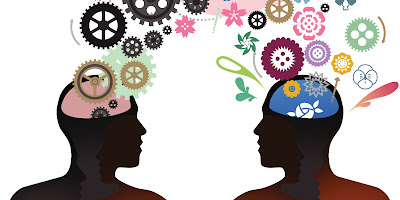Emotional Intelligence, or EQ is your ability to identify and react to your own emotions as well as the emotions of the people around you. Or Employment Insurance, known as EI, provides temporary income support while you look for work, or while you cannot work.
EQ, can be helpful when discussing your personal goals, connecting with the other employees, or creating a good reputation for yourself with the leaders in your organization and outside the workplace. Developing your emotional IQ can even help you in your non-professional relationships as well, allowing you to create better and more useful relationships with everyone. EI, provides income support and compassionate care while you look for work in what can be an emotional and stressful time.
Over the last decade there has been a huge increase in evidence that emotional intelligence is an important factor in leadership. Numerous studies have shown a positive relationship between emotionally intelligent leadership and employee satisfaction, retention, and performance. But what if your people skills aren't great or the company you work for EQ isn't there either, and you have found yourself unemployed because of them. Any area of a business might fail when leaders and/or workers are less connected to their emotions. People skills are almost always assumed to be a good thing. Search employment ads and you will find them listed as a qualification for a startling array of jobs. So it goes to say your EQ can help you navigate the social situations of the workplace, lead and motivate others, and excel in your career and help keep you from the EI lines.
What Happens When You Have Low Emotional Intelligence?
Again, low EQ can cause a variety of problems in any area of a business. Some of the most common problems include:
- Negative Emotions - People effortlessly feel overwhelmed and controlled by a wide range of negative emotions, including anger, worry, shame, disappointment, fear and guilt.
- Negative Perceptions - Those who experience negative emotions often have negative perceptions. They might feel weak, under-appreciated and/or powerless.
- Behavioral Issues - People become incapable of keeping negative emotions in check, which results in behavioral issues such as uncontrolled outbursts and rash split-second reactions.
- Poor Communication - Effective communication doesn’t exist with people with low EQ. They are usually too closed off and self-centered to understand others or appreciate suggestions. They have difficulty expressing themselves. Low EQ often results in misunderstandings.
- Reduced Proactivity - Leaders and workers become less proactive when dealing with emotions, decisions and/or productivity. Reduced proactivity can lead to weak direction when communicating about projects and tasks.
- Lower Performance - All of the above factors results in poor individual and team poor performance. Employees also don’t work as fast, and they are more likely to make critical errors that slow down production.
- Weak Confidence - Workers and leaders become less confident and trusting. They start questioning their own abilities, and motivations. They also lose their faith in others.
- Damaged Credibility - People internal and external to a company start to have lowered expectations and lose confidence that a worker, leader, team and/or business can perform as desired.
- Higher Losses - Employees quit or lose jobs because of negative perceptions. Loss of loyalty often results in fewer senior employees, more employee turnovers and a company then loses money to hiring and training processes. Revenue losses occur as vendors and customers decide to not do as much business with the company.
How to Improve your EQ by working on these 4 attributes.
- Self-awareness – You recognize your own emotions and how they affect your thoughts and behavior. You know your strengths and weaknesses, and have self-confidence.
- Self-management – You’re able to control impulsive feelings and behaviors, manage your emotions in healthy ways, take initiative, follow through on commitments, and adapt to changing circumstances.
- Social awareness – You can understand the emotions, needs, and concerns of other people, pick up on emotional cues, feel comfortable socially, and recognize the power dynamics in a group or organization.
- Relationship management – You know how to develop and maintain good relationships, communicate clearly, inspire and influence others, work well in a team, and manage conflict.
Developing emotional awareness
Whether it’s the Donald from The Apprentice or Donald Trump The President, these eat-the-weak-for-breakfast-types seem to be as powerful as ever. It might be worth noting those big corporations also promote leaders for their knowledge and tenure, rather than their skill in inspiring others to excel using EQ. President Donald Trump and other leaders may sell themselves short by selecting leaders who aren't well-rounded enough to perform at the highest levels for the long term = just saying!!
If you haven’t learned how to manage stress, it’s important to do so first. When you can manage stress, you’ll feel more comfortable reconnecting to strong or unpleasant emotions and changing the way you experience and respond to your feelings. You can develop your emotional awareness by learning to be mindful that helps you to get in touch with difficult emotions and manage uncomfortable feelings.
#EQ #emotionalintelligence #EI #selfawareness

No comments:
Post a Comment